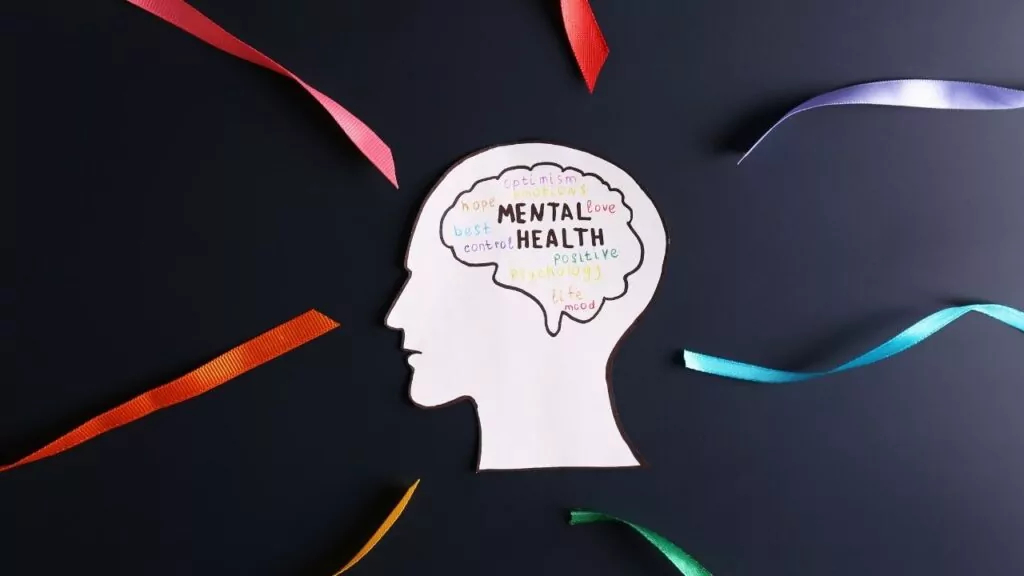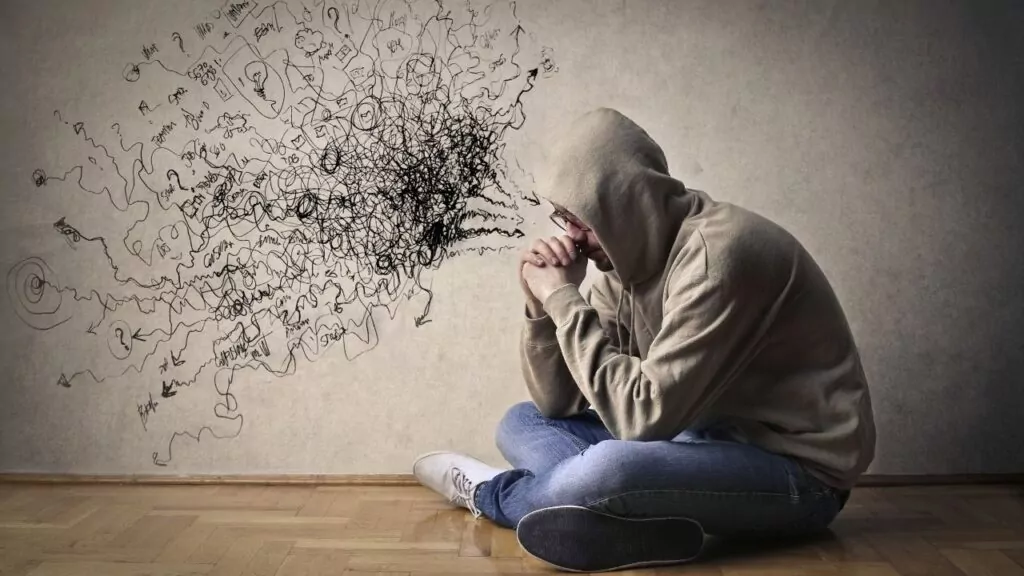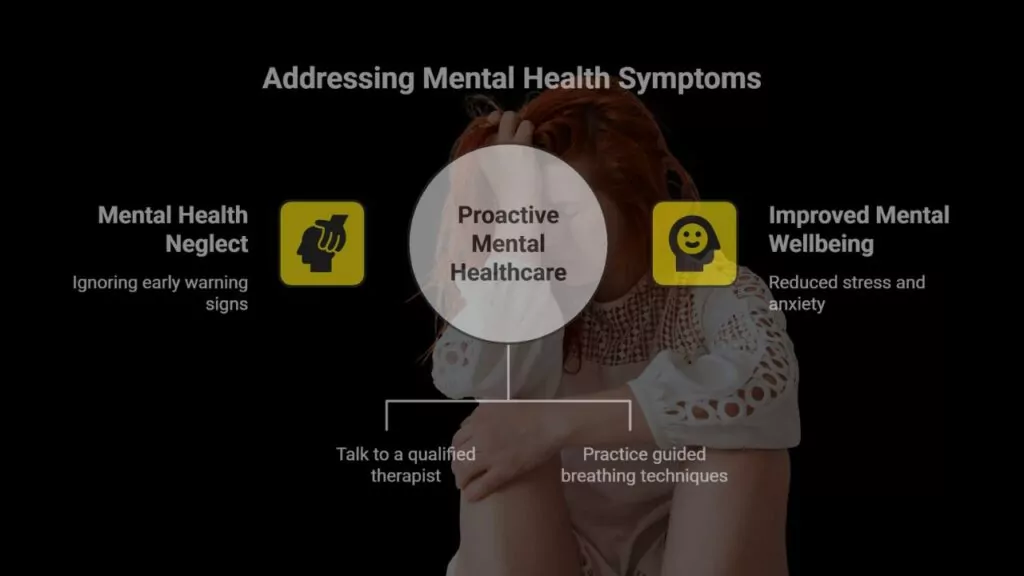Your mental health is deeply connected to the things you do every single day. Often, we don’t realize how small actions and choices add up and begin to impact how we feel, think, and cope with life. In today’s fast-paced world, poor mental health is becoming increasingly common, and our habits are partly to blame.
This article dives into 15 common habits that negatively affect mental health. If you find yourself struggling with stress, anxiety, low motivation, or mood swings, it might be time to look closely at your daily routine.
Top 15 Mental Health-Damaging Habits

While many of us focus on external stressors when discussing mental health, it’s just as important to examine our daily behaviors.
These habits may seem minor or harmless, but over time, they quietly chip away at our emotional resilience, cognitive clarity, and overall well-being. Below, we explore the most common culprits that can negatively impact your mental health—and what you can do to replace them with better alternatives.
1. Chronic Sleep Deprivation
Getting less than 6-7 hours of sleep regularly can damage brain function and emotional health. Sleep helps your brain process emotions, store memories, and reset your stress levels. Lack of sleep increases your risk of depression, anxiety, and poor focus.
| Sleep Habit | Mental Impact | Healthy Tip |
| Less than 6 hours of sleep | Increases anxiety, brain fog | Aim for 7-9 hours per night |
| No bedtime routine | Disrupted sleep cycle | Follow a regular sleep schedule |
2. Excessive Social Media Use
Spending hours scrolling through social media can create feelings of comparison, low self-esteem, and loneliness. This digital overload also leads to poor attention spans and sleep disturbances.
| Behavior | Mental Impact | Healthier Alternative |
| 4+ hours daily on social media | Mood swings, low self-worth | Limit use to 30-60 mins/day |
| Checking before bed | Sleep disruption | Avoid screens 1 hour before bed |
3. Negative Self-Talk

The words you use with yourself shape your self-image. Constantly criticizing yourself can lead to depression and anxiety. It also lowers your confidence and motivation.
| Thought Pattern | Impact on Mental Health | Positive Change |
| “I’m not good enough” | Lowers self-worth | Practice self-compassion |
| Always blaming yourself | Triggers guilt, shame | Use neutral, realistic thoughts |
4. Skipping Meals or Poor Nutrition
What you eat affects how you feel. Skipping meals, eating too much junk food, or drinking too much caffeine can cause mood swings, low energy, and brain fog.
| Nutrition Habit | Mental Effect | Healthy Tip |
| Skipping breakfast | Brain fatigue, irritability | Eat balanced meals regularly |
| Sugary/fried foods | Mood crashes | Include more fruits, veggies |
5. Procrastination and Avoidance Behavior
Putting off tasks leads to stress and guilt. The more we delay important actions, the more overwhelmed we feel. Over time, this can increase anxiety and reduce productivity.
| Habit | Psychological Cost | Quick Tip |
| Avoiding important tasks | Rising stress, anxiety | Break into small, doable steps |
| Waiting until last minute | Mental overload | Use a task planner |
6. Lack of Physical Activity
Exercise is not just for physical health—it boosts brain chemicals like serotonin and dopamine that improve mood. A sedentary lifestyle is linked to depression and cognitive decline.
| Activity Level | Effect on Mood | What to Do |
| No regular movement | Low energy, mood dips | Walk 30 mins/day |
| Sitting 8+ hours daily | Anxiety, stress | Use standing breaks |
7. People-Pleasing Tendencies
Saying yes all the time may feel nice, but it often leads to burnout and resentment. Constantly trying to please others over yourself can erode your mental well-being.
| Behavior | Emotional Impact | Healthier Option |
| Always saying yes | Burnout, frustration | Learn to say “no” kindly |
| Ignoring your needs | Emotional exhaustion | Set clear boundaries |
8. Overconsumption of News and Doomscrolling
While it’s good to stay informed, constant exposure to bad news can lead to emotional fatigue, hopelessness, and anxiety. This is known as doomscrolling.
| Habit | Mental Effect | Better Approach |
| 24/7 news updates | Stress, helplessness | Limit to twice a day |
| Late-night news browsing | Sleep anxiety | Unplug before bedtime |
9. Multitasking All the Time
Juggling too many tasks at once overwhelms the brain. It increases mistakes, lowers productivity, and adds to mental stress.
| Task Habit | Cognitive Load | Mindful Option |
| Constant multitasking | Mental fatigue | Focus on one task at a time |
| Switching tasks quickly | Anxiety spike | Use Pomodoro method |
10. Isolation or Avoiding Social Interaction
Humans are social creatures. Isolation can cause or worsen depression and anxiety. Even introverts need meaningful human connections.
| Social Pattern | Mental Health Outcome | Healthy Strategy |
| Avoiding people | Loneliness, sadness | Call or meet friends weekly |
| Working alone all week | Feeling disconnected | Join a local or online group |
11. Bottling Up Emotions
Ignoring your emotions doesn’t make them go away. Suppressing feelings often leads to emotional outbursts or chronic stress.
| Emotion Habit | Long-Term Effect | What Helps |
| Never talking about feelings | Built-up tension | Journal or talk to someone |
| Smiling through pain | Emotional strain | Practice emotional honesty |
12. Saying “Yes” Too Often
Always saying “yes” can make you feel drained. You may end up with too many responsibilities and not enough time for yourself.
| Habit | Mental Result | Simple Fix |
| Fear of saying no | Anxiety, regret | Start with small refusals |
| Prioritizing others | Loss of self-time | Schedule personal time daily |
13. Ignoring Mental Health Symptoms

Mental health issues need attention, just like physical ones. Ignoring signs of stress, burnout, or sadness can lead to severe conditions.
| Symptom | Consequence | Action Step |
| Ongoing sadness | Depression risk | Talk to a therapist |
| Anxiety every day | Panic attacks | Try guided breathing or seek help |
14. Poor Work-Life Balance
Constantly working without rest leads to mental fatigue and stress. Without downtime, your brain doesn’t get to recharge.
| Work Pattern | Psychological Impact | Recovery Tip |
| No time off | Burnout | Schedule weekly rest |
| Always thinking about work | Chronic stress | Practice mindfulness |
15. Constant Self-Criticism and Perfectionism
Striving to be perfect all the time is mentally exhausting. Perfectionism often leads to fear of failure and never feeling “good enough.”
| Thinking Style | Mental Health Effect | Better Practice |
| Harsh self-talk | Low confidence | Use affirmations |
| Unrealistic goals | Anxiety, frustration | Embrace progress over perfection |
Harming vs Healing: How to Break the Cycle
Breaking harmful mental health habits begins with awareness. Once you identify the patterns that hurt your mind, you can replace them with healing habits.
Here are a few small changes you can start today:
- Stick to a sleep schedule
- Move your body for at least 30 minutes
- Limit screen time and doomscrolling
- Eat regular, balanced meals
- Say no when needed and protect your time
- Talk about your feelings
Over time, these small steps build mental strength.
Takeaways
Many of us don’t realize how our everyday habits are quietly shaping our mental health. From skipping meals to staying up late and constantly comparing ourselves on social media, these common behaviors can do real harm.
The good news? You can start changing these habits today. Identify the patterns that drain your energy or peace of mind and replace them with healthier actions. Even one small shift can lead to a big difference in how you feel.
Start by being kind to yourself, get the support you need, and build a daily routine that nourishes your mental wellness.
FAQs – Habits That Harm Mental Health
Q1: What is the most damaging habit for mental health?
A: Chronic sleep deprivation and negative self-talk are among the most harmful habits.
Q2: Can small changes really improve mental health?
A: Yes. Even tiny changes, like drinking water or walking daily, improve brain function and mood.
Q3: Is social media always bad for mental health?
A: Not always, but excessive or unmindful use can harm mental wellness.




















